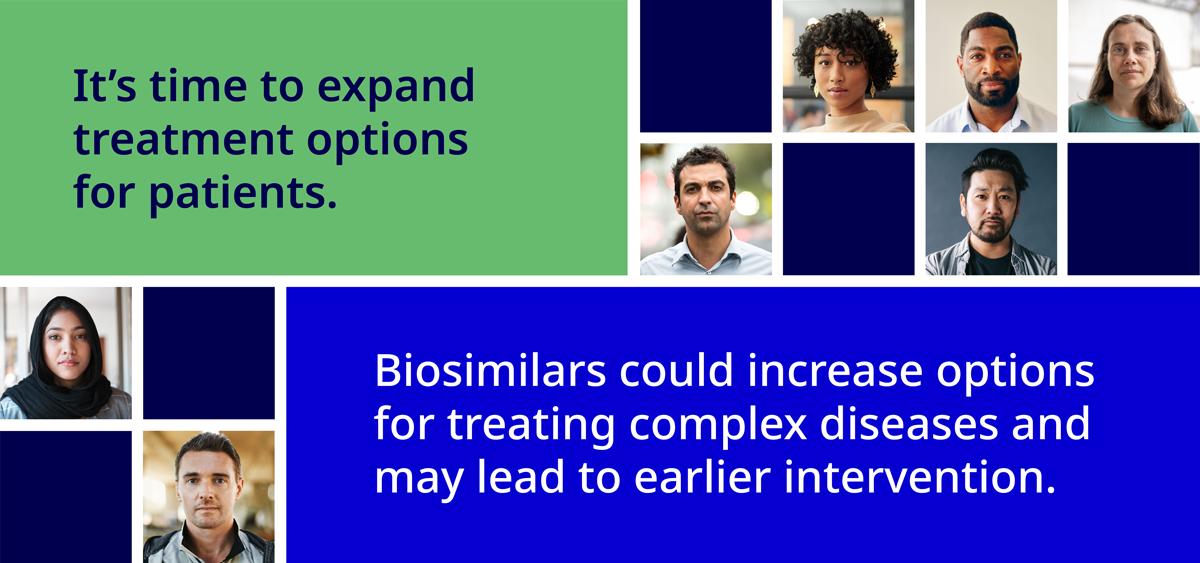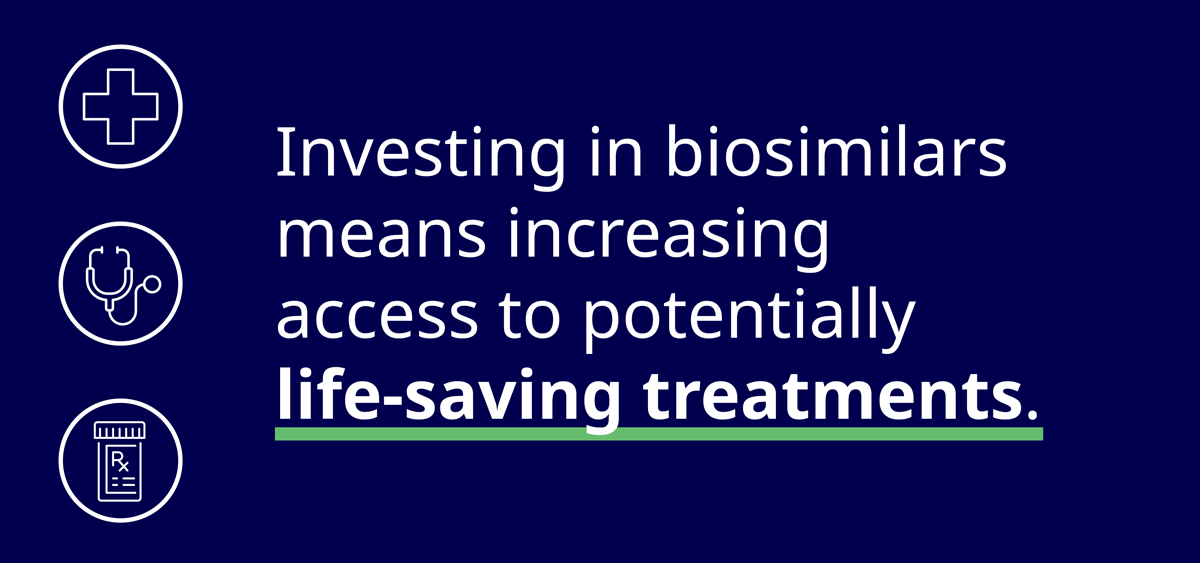Fix the Biosimilars System to Safeguard the Savings
Biosimilars can help increase patient access to life-saving treatments and are often lower-cost alternatives to their biologic counterparts. But barriers in the current system may make it hard for physicians to prescribe them. Smart policies and action in Congress could help.
What Are Biosimilars?
Biosimilars are FDA-approved products and treatments that closely resemble related biologics. Biologics are treatments made from living organisms through highly complex manufacturing processes. Biosimilars have no clinically meaningful differences from biologics in terms of safety and effectiveness, and they are often less expensive. Only minor differences in clinically inactive components are allowable in biosimilar products.
There is a growing demand for biologic therapies that have successfully treated chronic diseases, including cancer, diabetes, and rheumatoid arthritis.1 But patients may have difficulty accessing these treatments. That’s why, now more than ever, we need policies that support patient access to biosimilars.
In addition to helping to improve patient affordability and access to life-saving treatments, biosimilars could also potentially save the U.S. healthcare system billions of dollars and help patients receive the highest level of care.

Biosimilars Could Provide Dramatic Healthcare Savings
Biosimilars could produce savings for patients and the entire healthcare system. A recent report found:
- The use of biosimilars has saved patients and the healthcare system nearly $24 billion since 2015. 2
- In 2022 alone, biosimilars saved patients and the healthcare system almost $10 billion.2
- Biosimilar average sales prices today are more than 50 percent lower than the brand biologic price at the time of biosimilar launch.2

The Future of Biosimilars Is at Risk
Biosimilars offer increased access to life-changing treatments,2 but their survival could be at risk.
In the current system, regulatory and market barriers are deterring providers from taking advantage of biosimilars, meaning patients could be missing out on these life-changing therapies. Most notably, physician reimbursement is decreasing — with some physicians paying more for the product than they receive back from insurers and payers.
A recent survey found that 97% of practitioners were affected by biosimilars provider reimbursements.3
The financial losses caused by the broken physician payment system are forcing some infusion clinics to stop offering biosimilars — a move that could potentially delay care, require patients to go to a different location to receive care, and increase costs for patients and the healthcare system.3 It’s time to support reform so that the promise of biosimilars to deliver savings for patients and healthcare systems can be continued!
Let’s Fix the System To Safeguard the Savings
The good news is that Congress can help promote the use of biosimilars so patients can better access these important treatment options.
Reforming the reimbursement system will be critical to enabling use of biosimilars, including those that must be infused under a physician’s care, while also supporting the system’s sustainability by providing significant cost savings. Other helpful policies include those that recognize the attributes of biosimilars, drive competition, and nurture an environment that facilitates broad, affordable access to care.
Read here a report from the IQVIA Institute for Human Data Science, featuring perspectives from provider, payer, Group Purchasing Organization (GPO), academic and industry experts on systemic issues that can lead to sub-optimal uptake of infused biosimilars and proposed public policy approaches. Pfizer provided funding for this report and roundtable and a Pfizer representative participated in the roundtable.
Join Ready for Cures to learn how you can help patients access innovative, life-saving treatments like biosimilars.
- IQVIA Institute for Human Data Science. Biosimilars in the United States 2023-2027. January 2023. https://www.iqvia.com/insights/the-iqvia-institute/reports/biosimilars-in-the-united-states-2023-2027.
- Association for Accessible Medicines. The U.S. Generic & Biosimilar Medicines Savings Report. September 2023. https://accessiblemeds.org/sites/default/files/2023-09/AAM-2023-Generic-Biosimilar-Medicines-Savings-Report-web.pdf
- Coalition of State Rheumatology Organizations. “Explanatory Statement: ‘Underwater’ Biosimilars.” May 2024. https://csro.info/UserFiles/file/CSROExplanatoryStatement-UnderwaterBiosimilars.pdf
